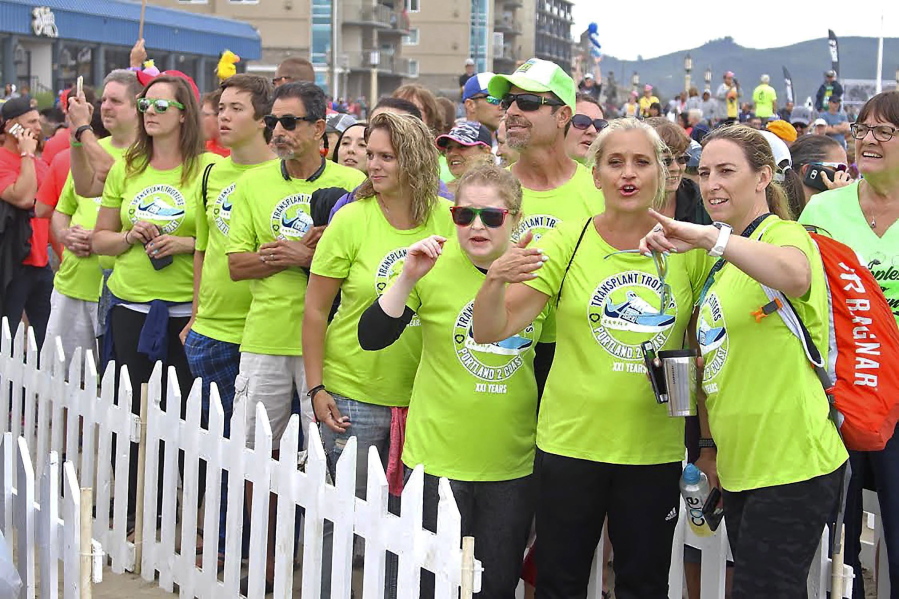SEASIDE, Ore. — A decade ago, the idea of being an organ donor never crossed Nicole Andergard’s mind.
“I mean, before this, I was the kid running from needles at the blood drive,” she laughed.
But then she got a call about her best friend, Anna, being admitted to the hospital for kidney issues related to her autoimmune disease. The two had met in kindergarten at Warrenton Grade School, with most of their childhood memories defined by each other. Suddenly, the fear of needles didn’t seem so daunting.
While talking to Anna’s parents in the lobby of the hospital, Andergard decided on the spot she was going to be her best friend’s kidney donor. Otherwise, her friend could have been put on a long waiting list.
“To a certain extent, it was selfish,” Andergard said. “I needed my best friend with me in my life.”
In honor of her friend, Andergard competed in the Portland to Coast leg of the Hood to Coast Relay with the team “Transplant Trotters” to raise awareness about the need for organ donors.
The team, started through the organ transplant nonprofit Donate Life Northwest 21 years ago, was one of 400 walking teams to participate in the 37th annual Hood to Coast Relay over the weekend. The team has hosted participants from around the Pacific Northwest, welcoming organ donors, recipients and their family members.
Andergard has made participating an 11-year tradition since the surgery, often competing with her friend’s family members.
According to Donate Life Northwest, 87 percent of all transplants needed in Oregon are kidneys, and the waiting list for transplants can span years. Part of this, Andergard believes, is due to a perception that giving an organ means giving away the possibility of a normal, life.
Andergard, a Warrenton local who now lives in Portland, decided to start competing in the relay to show how the perception is wrong.
“The only thing that has changed in my life is I can’t take Advil. I take Tylenol instead. And no contact sports, like football or bull riding, which luckily I never was interested in doing anyway,” she said, though she admitted she did make sure to ride a mechanical bull at least once before her surgery.
Walking in the race is especially important to Tracy Hoyle, who over the course of two decades has received two heart transplants and a kidney transplant.
At 29, when she was told a virus had impacted her heart, she was filled with uncertainty.
“I thought I’d never have a child. I didn’t know what to expect,” she said. “I have a weird outlook on life that’s like ‘everything’s going to be OK,’ so I wouldn’t say I was panicked at any point. But I just never knew I’d be healthy enough to do something like this.”
There are some aspects of the race for the Transplant Trotters that aren’t realities for other teams.
Everyone chuckles on the registration form when it comes to the question about medications.
“Too many to list,” Hoyle laughed.
The team is also less likely to have a “suck it up, buttercup” mentality when it comes to pain, said Andergard, who is always ready with a backup for someone who may be having a bad day.
But otherwise?
“If you saw any of us walking down the street, you wouldn’t think that we had transplants,” Hoyle said. “We are the face of organ recipients, and we look a lot like you.”



